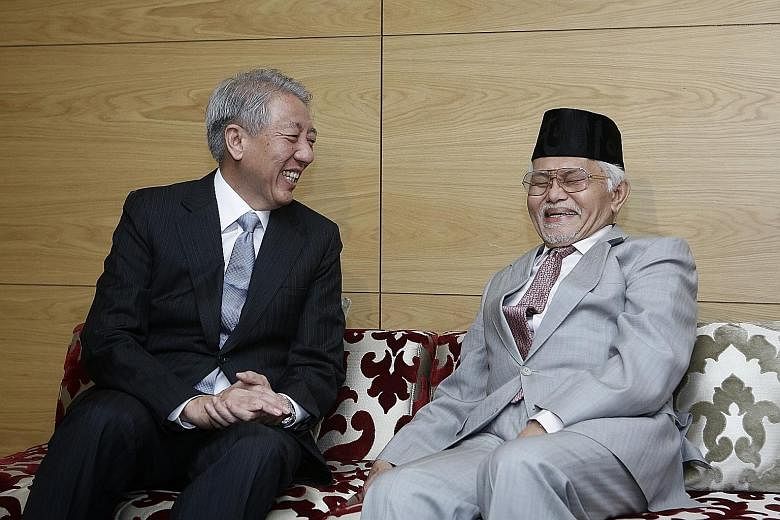Different racial and religious communities must unite to counter extremism and violence in all forms, Deputy Prime Minister Teo Chee Hean said yesterday.
"Inter-communal tensions and distrust can be easily exploited by those seeking to divide society and advance their radical ideology," Mr Teo said at the 17th general assembly of the Regional Islamic Da'wah Council of South-east Asia and the Pacific (Riseap) at the Grand Hyatt Hotel.
Formed in 1980, Riseap is an organisation for Muslim-minority communities in South-east Asia and the Pacific region to cooperate and share best practices.
Mr Teo, who is also Coordinating Minister for National Security, pointed to the conflict in the Rakhine state in Myanmar as an example of a "longstanding and complex inter-communal issue with deep historical roots".
"Such conflicts, if unresolved, can breed extremism and terrorism that could spread to threaten the region," he said as he called on all parties to stop the violence, restore stability and allow humanitarian aid to reach those who need it.
To counter extremism and terrorism, a close watch must be kept on teachings or statements that exclude and divide, he said.
Because of this, Singapore recently banned two foreign Christian preachers who had made denigrating and inflammatory comments on other religions.
Mr Teo said attacks by those claiming to act in the name of Islam had led to a rise in Islamophobia - a prejudice against believers of Islam - in some countries.
Echoing his comments, Riseap deputy president Ridzuan Wu said the acts of extremist groups such as Al-Qaeda and the Islamic State in Iraq and Syria had caused some non-Muslims to paint all Muslims with a broad brush.
Bodies such as Riseap have the responsibility of building bridges between different communities instead.
A strong foundation of mutual understanding and mutual respect between communities is needed to encourage integration and enlarge the common space, said Mr Teo.
"Many religious organisations in Singapore adopt inclusive practices and partner each other in their activities," he said.
"Our mosques welcome non-Muslims to visit. And it is now common for non-Muslims in Singapore to join their Muslim friends at iftar or breaking fast during Ramadan, and learn more about Islam." Building "open, inclusive and integrated" societies can help build bridges of trust and mutual understanding between different communities, he said.
"This will provide a strong reservoir of trust as we counter extremism in all its forms together, and promote social progress for all."


